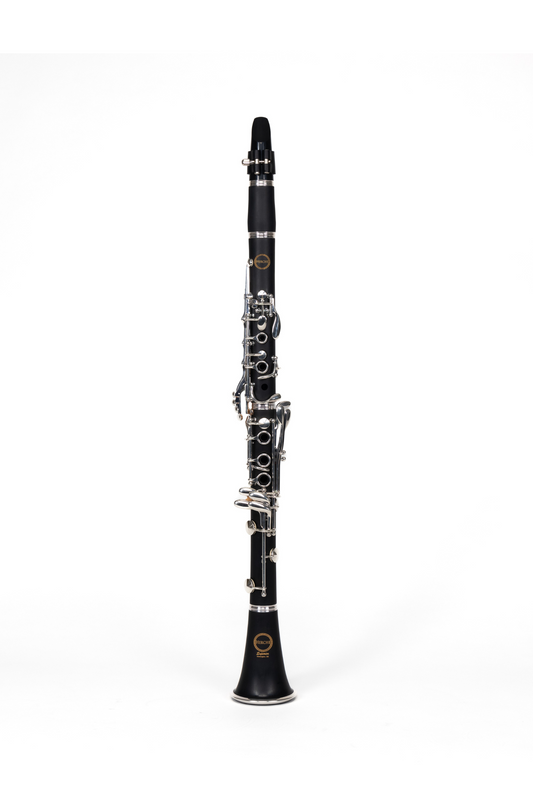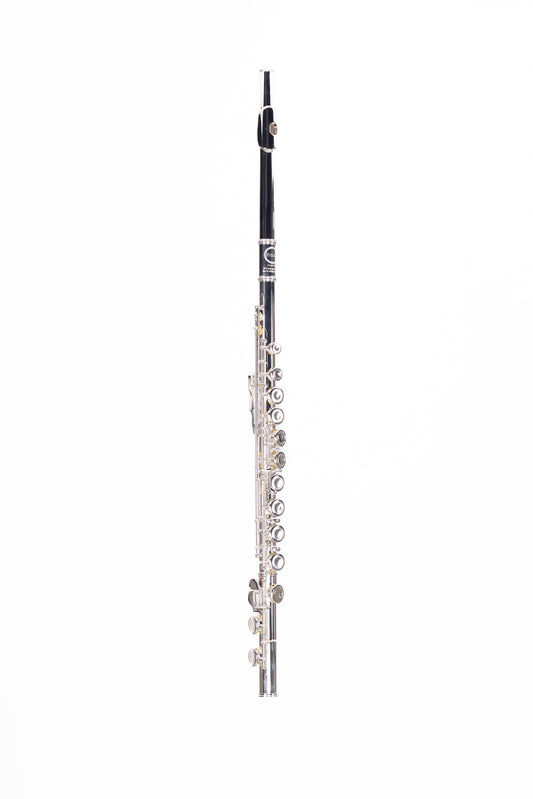
How to Pick Your First Band Instrument: Flute, Saxophone, Trumpet, or Clarinet?
Share
Choosing your first band instrument is an exciting and important decision in a young musician's life. Whether you're a beginner or just trying to decide which path to take in your musical journey, it's crucial to consider not only the sound and feel of each instrument but also the technical skills and commitment required for each. In this post, we'll take a look at four popular instruments in the concert band world: the flute, saxophone, trumpet, and clarinet, and break down the key differences between them to help you make an informed decision.
1. Flute: The Light and Airy Sound
The flute is a wind instrument, played by blowing air across the mouthpiece rather than through a reed (like many other woodwinds). It’s an ideal choice for those who enjoy the idea of producing a clear, sweet, and light sound. Here are some things to consider:
- Sound: The flute produces a light, airy, and bright tone. It’s especially popular for melodic, lyrical passages and can shine in both solo and ensemble settings.
- Range: The flute has a wide range and is often used to play both high and fast passages in orchestral and concert band music.
- Learning Curve: Producing a clear tone on the flute can be a bit challenging at first because you need to master embouchure (the way you position your mouth on the mouthpiece). The flute requires good breath control which can take a while to develop, but with proper training and practice, is well worth the effort. Once you get the hang of it, you can produce a beautiful sound!
- Physical Requirements: It’s relatively small and lightweight, which can be an advantage for younger players.
Ideal For: Those who want to play a more melodic instrument that can cut through the sound of an ensemble with its bright, expressive voice.
The Herche Superior Flute M2 is the best flute for beginners and students who want a high quality, affordable option with a professional tone. It is great for students and beginners, and is a step up above the other beginner instruments on the market.
2. Saxophone: The Versatile and Smooth Sound
The saxophone has a rich, full sound that fits into a variety of musical genres, from classical to jazz to pop. Here’s why you might want to consider it:
- Sound: The saxophone offers a warm, mellow tone, often described as smooth or soulful. It’s a versatile instrument that can play both smooth, slow melodies and quick, energetic rhythms.
- Range: The saxophone has a large range and can be played in many different musical styles. There are 6 most common sizes, each achieving a different tone and range. Saxophones are commonly used in jazz, pop, and concert band music.
- Learning Curve: The saxophone uses a reed, which gives it a similar feel to the clarinet. While it takes some time to learn how to get the right sound, many beginners find it easier to make an attractive tone on the saxophone than on some other woodwinds.
- Physical Requirements: The saxophone is a larger instrument, and while it’s still relatively lightweight for a brass instrument, it can be challenging to hold and manage at first, especially for younger students.
Ideal For: Students who want an instrument with a unique sound that’s both easy to learn and versatile enough to be used in various genres.
The Herche Superior Tenor Saxophone and The Herche Superior Alto Saxophone are perfect saxophones to start out with, simply because the quality of instrument and professional tone will last for years to come - well into your musical journey. Want to learn more about the difference between the tenor and alto saxophone? Read our helpful article here.
3. Trumpet: The Bold and Brassy Sound
The trumpet is a brass instrument that stands out for its bright, powerful sound and its ability to project across an ensemble. It’s often associated with fanfares, bold melodies, and high-energy performances. Here’s what you need to know:
- Sound: The trumpet produces a bright, bold, and brassy tone. It is a natural "leader" in most ensembles, and its sound can really cut through the texture of a full band.
- Range: The trumpet has a bright, high range, which is why it’s often the instrument that leads a melody. It also has a strong presence in both brass bands and concert bands.
- Learning Curve: One of the challenges of the trumpet is getting a consistent buzz with your lips. This can take time and patience, but once you get the hang of it, the trumpet is a fun and rewarding instrument to play.
- Physical Requirements: The trumpet uses valves to change pitch, and you play it by buzzing your lips into the mouthpiece. This requires significant control and strength, particularly with your embouchure.
Ideal For: Those who like a bold, energetic sound and want to be at the forefront of the band. The trumpet can be a little tricky at first, but with practice, it offers the thrill of playing powerful melodies and high-flying solos.
The Herche Superior Trumpet M1 is perfect for students and beginners, with the bright and open tone that you'd expect from a professional instrument. This trumpet will set any aspiring musician up for success.
Designed and constructed with care, this high-quality brass instrument is built to last for a lifetime of making music.
4. Clarinet: The Rich and Expressive Sound
The clarinet is another woodwind instrument that uses a reed to produce sound, and it’s one of the most common and versatile instruments in both classical and contemporary music. Here's why the clarinet might be the right choice for you:
- Sound: The clarinet is known for its smooth, warm, and expressive tone. It can be played in both low and high registers, with a broad dynamic range. It's an instrument that’s often praised for its flexibility.
- Range: The clarinet has a wide range of pitches, allowing for a great deal of expression. It’s commonly used in both classical and jazz ensembles.
- Learning Curve: Producing a consistent sound on the clarinet can take some time, especially as you get used to controlling the reed and developing your embouchure. However, once you master it, you’ll find it’s a very rewarding instrument.
- Physical Requirements: The clarinet is relatively lightweight and smaller than the saxophone or trumpet. However, like the flute, it requires good breath control. The reed is also very important, and learning how to handle and maintain it can be tricky at first.
Ideal For: Those who want a versatile instrument with a rich, expressive sound. The clarinet works in many genres, from orchestral to jazz, and is ideal for students who enjoy musical expression and learning the subtleties of tone production.
The Herche Superior Bb Clarinet X3 boasts clarity and perfection with every note. This model produces an unparalleled professional tone in its class and is the best option for beginner and student clarinet players.
The Importance of Learning Music
No matter which instrument you choose, learning to play music has numerous benefits. It teaches discipline, patience, and perseverance. It encourages creativity and teamwork, especially when performing in an ensemble or band. Music also helps develop cognitive skills, like memory and problem-solving, and has been shown to enhance academic performance in other subjects. More importantly, it provides a lifelong joy that can connect you to others, whether you're performing, composing, or simply enjoying music.
Final Thoughts
Choosing between flute, saxophone, trumpet, or clarinet can be a tough decision, but the right choice depends on your personal interests, the sound that appeals to you, and the kind of musical challenges you're ready to take on. Each of these instruments offers its own unique rewards, from the bright tones of the trumpet to the smooth, versatile sound of the saxophone or the expressive range of the clarinet and flute.
Ultimately, the most important thing is to start your musical journey. No matter which instrument you choose, you’ll be opening the door to a world of creativity, expression, and musical achievement. Enjoy the process, and happy playing!
What instrument are you considering for your first band experience? Let us know in the comments below! We’d love to hear your thoughts and experiences.









